Speakers, alphabetically according to first name
Program and signup for the conference:
https://www.globalbildung.net/ebd2025/
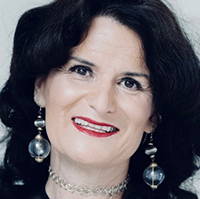
Agota V. Szendrei
Austria
Ágota’s passion for arts and art-making has been cultivated over time also in her profession as a company consultant in HRD, trainer and coach. In addition, she embarked on a PhD journey at the University of Graz in Austria.
Turning struggles and challenges into opportunities for creative learning
My research explores the potential of visual art in soft skills training for adults and its lasting impact on inner development over time. Interviews with former participants reveal an ambivalent relationship, marked by a tension between positive emotions and concern regarding acceptance, beliefs and prejudices that are evoked by creative activities and framework conditions.
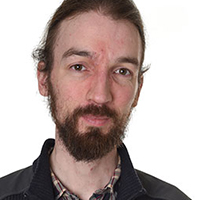
Daniel Östergren
Sweden
Daniel Östergren is a PhD candidate at Örebro University, where he also lectures academic courses on gastronomy and wine tasting. His research focuses on gastronomy as an arena for bildung, where he considers bildung as a mode for interpretation and meaning-making. He will finish his PhD project in 2026. https://www.oru.se/english/employee/daniel_ostergren
Gastronomic bildung – Food for thought?
Daniel will present some tasty ideas and examples from his thesis and discuss how a gastronomic approach to bildung can contribute in our time.
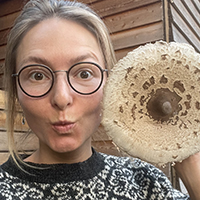
Emma Skamris Therkelsen
Denmark
Emma is a teacher at Egå Youth Folk High School where she teaches regenerative horticulture.
Permaculture, Bildung and Restoration of Nature
Moving beyond sustainability, we work to regenerate the inner and outer landscape at Egå Ungdoms-Højskole. By integrating our students in growing, harvesting and preserving food the permaculture way, by recycling resources, synchronizing with the rhythm of the seasons and giving voice to the more-than-human world, we aim to create a school, that mimics an ecosystem and showcases what it means to live within the planetary boundaries.
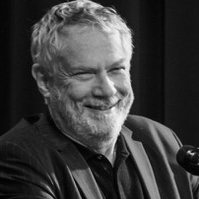
Kees Spijker
The Netherlands
Kees Spijker has been working in higher education and numerous profit and non-profit organizations as a consultant, trainer and manager for almost four decades. Amongst others as director of The New School for Information Services in Amsterdam for 16 years. In this last capacity he was responsible for giving bildung the central role it should have in (higher) education. He now is a board member of the Common Good Economy Foundation in the Netherlands and participates in various Advisory Boards in higher education institutions and works as an independent consultant and interim manager. https://www.linkedin.com/in/keesspijker/
Bildung: education for the Common Good
Working together on complex educational challenges in an insecure period of time requires collective frames of thinking, planning and doing. And we need wisdom. Our contribution will be aimed at presenting a model that contains the relationship between Economy for the Common Good, Bildung and the Whole School Approach for education for sustainable development (ESD). Please bring your own wisdom.
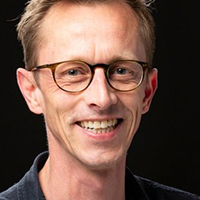
Lars Andreassen
Denmark
Lars is since 20 years a teacher at Egå Youth Folk High School where he teaches philosophy, history of ideas, and useful approaches to life.
Working with 16-19-year-olds and promoting bildung
In my presentation, I will demonstrate how we at Egaa Youth Folk School have created an educational environment that empowers our wonderful students to engage in meaningful challenges and seize opportunities to take responsibility for their own activities, social lives, and personal growth. I will also explore how, within this setting, our students develop emotionally, physically, and intellectually, fostering a stronger sense of self and a deeper understanding of their relationship with both the political and physical world.
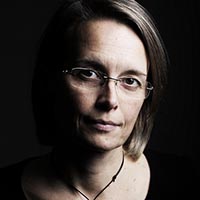
Lene Rachel Andersen
Denmark
Lene is one of the co-founders of the European Bildung Network and the European Bildung Days, she is also one of the organizers of the conference, and she is the director of Nordic Bildung. She is the author of 20 books that all relate to bildung, technological and cultural development, and democracy, one of her books is The Nordic Secret. Lene is also a full member of the Club of Rome.
What I learned as a girl scout and why I still have my uniform
From I was 7 to 12 years old, I was a girl scout, and from I was 12 to 17 years old, I became one of the scout leaders for the 7 to 10-year-old girls. This was an outstanding environment for bildung of all kinds, and today, I keep my old uniform, not just for sentimental reasons, but because it made a difference back then and somehow still does.
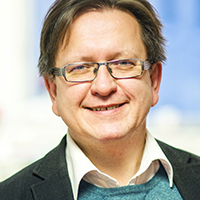
Ludvig Claeson
Norway
I am a professional cellist, but since 2007 I have engaged myself more and more in culture politics, and lifelong learning in the field of music.
Today, I am the secretary general of Musikkens studieforbund (MSF). MSF is a NGO, and one of the 13 governmentally approved adult learning associations in Norway.
AEAM is an umbrella organization which consists of 38 national voluntary organizations – all dealing with music; however in different genres. These organizations comprise about 170 000 individual members and made approximately 5 900 courses with about 83 000 participants in 2024.
European National Identities in Classical Music
When nation states consolidated in the 19th century, finding your own music was a key factor for building national identity and pride.
I will present a few examples, that show how both individual composers and societal structures contributed.
And in a global world, what is the national romantic music scene today? Could it be Eurovision?
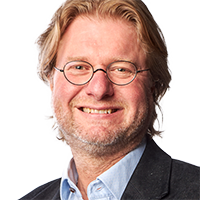
Marcel Elsenaar
The Netherlands
Starting as a teacher in worldview education I developed my programs together with my students. As a educational consultant I help teachers and schoolboards to connect worlds and open up to what is necessary in our days. Even if we don’t know how, we can work on the future.
Bildung: education for the Common Good
Working together on complex educational challenges in an insecure period of time requires collective frames of thinking, planning and doing. And we need wisdom. Our contribution will be aimed at presenting a model that contains the relationship between Economy for the Common Good, Bildung and the Whole School Approach for education for sustainable development (ESD). Please bring your own wisdom.
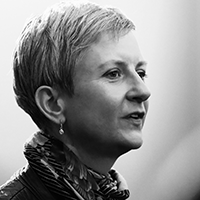
Sarah Woods
United Kingdom
Sarah is an award-winning writer and researcher. She is currently writing a podcast series and book called STORY TIME: how story makes and changes the world. Sarah is a Research Associate at Stofnun Árna Magnússonar, The Árni Magnússon Institute for Icelandic Studies in Reykjavik. Her dramatisation of Charles Darwin’s The Origin of Species, for BBC Radio 4, will be broadcast in June.
Story Time: how story makes and changes the world
Stories are everywhere. They come at us through the media, from politicians – today even bars of chocolate and cans of beer have their own story.
We use stories to make sense of the world, of who we are and what’s possible for us. They’re an important part not just of how we communicate, but how we think.
This keynote speech explores the importance of story in making – and changing – our increasingly complex world.
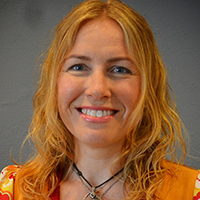
Torunn Elise Kveen
Norway
Torunn Elise Kveen, the Study Association Culture & Tradition, Norway
More info is on its way…
Self-Organization at the Grass Root Level: Bildung the Norwegian Way
The Nordics is very much self-organized from the grass root level and up. Part of what we self-organize is our bildung / adult nonformal education / life-long learning, and the prerequisit for self-organizing it is bildung. Get the Norwegian perspective on how to self-organize bildung and society from the bottom.
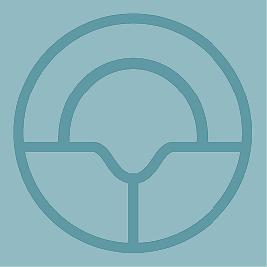
Yuliia Naidych
Ukraine
More info is on its way…
Paideia and Bildung
More info is on the way…

